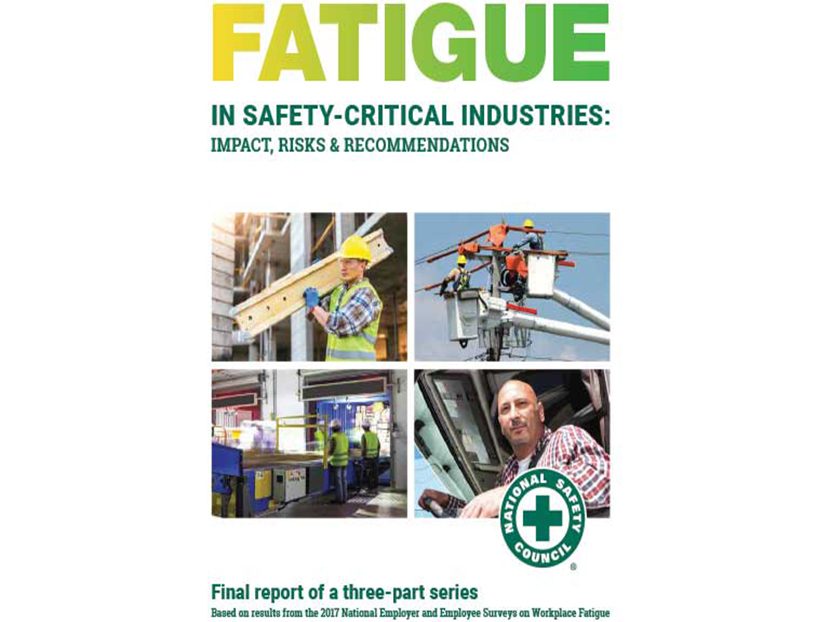Safety Report: 100 Percent of Construction Workers Report Risk Factors for Fatigue at Jobsite

A 20-page report issued by the National Safety Council on Oct. 1 stated that 69 percent of workers it polled across the construction, manufacturing, transportation, and utility industries said they are “tired at work,” which the group said “increases the risk of injuries and incidents on the job.”
The report, entitled Fatigue in Safety-Critical Industries: Impact, Risks and Recommendations, summarizes the results of two national surveys – one of employers and a second probability-based survey of employees – and found that 100 percent of construction workers reported some risk factor for fatigue at work, including long shifts and sleep loss. Almost 50 percent of construction workers reported that they work during “high-risk” hours for fatigue, such as at night or in the early morning.
The survey has also exposed a gap between how employees and employers view the risks of jobsite fatigue. Ninety percent of employers view fatigue as a safety and productivity issue, as compared to only 72 percent of workers.
“We’ve been looking at the impact of fatigue in the workplace for a long time, but it is troubling to see just how affected our safety-sensitive industries are,” said Emily Whitcomb, senior program manager of the NSC’s Fatigue Initiatives, in a statement. “When you’re tired, you can be deadly and these industries are already at higher risk because of their safety sensitive jobs. We urge employers to address fatigue risk in their workplace so all employees can be healthy and safe.”
The report is the third in a three-part series exploring the prevalence of fatigue risk factors and safety-critical incidents caused by fatigue in U.S. workplaces
The group’s report also highlighted fatigued employees are also more likely to make mistakes that cause incidents and injuries. A 2014 meta-analysis of 27 observational studies estimated up to 13 percent of workplace injuries could be attributed to fatigue, and workers with sleep problems had a 1.62 times higher risk of being injured than those without sleep issues. NSC’s report also calculated that lack of sleep costs $410 billion annually in “societal expenses.”




